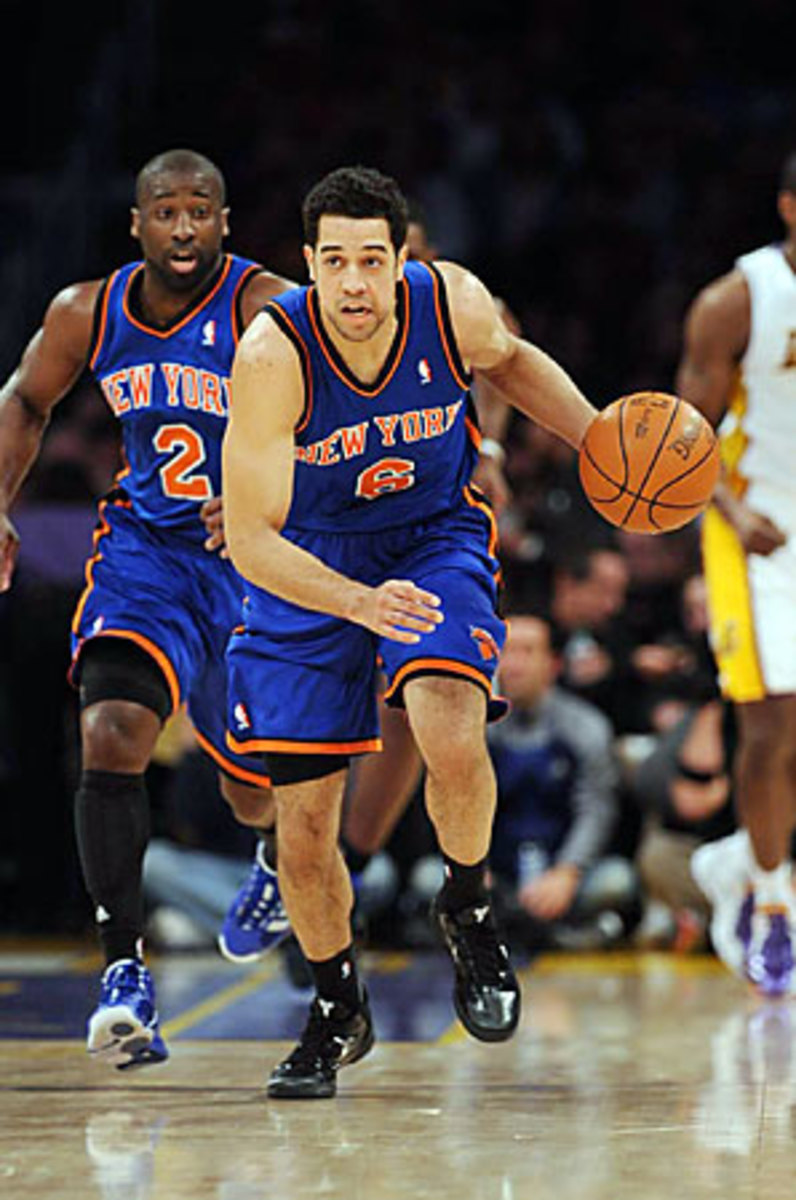A surprise rookie, Fields brings complete game, maturity to NBA


In the modern world of over-the-top sports parenting, when the only path worth walking is the one that leads to a Division I scholarship, there is a single way for children to reach glory: obsession.
You must play a single sport year round. When you are not playing the single sport year round, you must be thinking about the single sport, reading about the single sport and organizing your schedule, your diet and your social life (if you're allowed to have one) around the single sport.
This is how LeBron James became LeBron James; how Bryce Harper became Bryce Harper; how Sidney Crosby became Sidney Crosby.
Fun? Fun comes later.
Emotional development? Emotional development comes later.
It is about being the best. About winning. About overcoming the odds and silencing the naysayers and ...
Nonsense.
There is, believe it or not, another way. A better way. A way in which a human being can be fully formed and athletically dazzling.
Just ask Landry Fields.
The New York Knicks' rookie guard is one of the great stories of the 2010-11 NBA season. Selected with the 39th overall pick in the second round of last year's draft, Fields is averaging 10 points and 7.2 rebounds per game as a surprise starter for the Eastern Conference's sixth-place team. Were the league to name its All-Rookie team today, Fields would be a no-brainer selection.
"He's unbelievable," said Knicks forward Shawne Williams, a four-year veteran. "He's very mature and very strong. And, to be honest, most of us never heard of him before."
That's not completely by accident. As opposed to the majority of the highest draft picks, Fields spent four years at Stanford, actually (gasp!) attending his classes and graduating in May with a communications degree. He wasn't there as a so-called "student-athlete" (the NCAA's embarrassing code word for one-year rentals), but as a student who also played basketball. Is this the best path to NBA superstardom? Probably not -- today's league executives seem to crave young, raw, developing prospects, not near-finished products. But what Fields lacks in untapped potential he makes up for in maturity.
"There's no secret to Landry's success," said LSU coach Trent Johnson, who had Fields for his first two years at Stanford. "Yes, he can shoot and rebound. But he's bright, and he's a student of the game. He was always extremely bright and thoughtful. We call those traits intangibles, and he had them in droves."
Fields is the latest in a long run of family basketball stars -- his father, Steve, played guard at Miami of Ohio; his mother, Janice, played forward at Highland (Wash.) Community College; his two aunts, Sue and Trish, played forward at the University of Puget Sound in Tacoma, Wash.; and his great uncle Dave Barker was a guard on Ohio State's 1960 NCAA title team.
As you read this, Cameron Jones, Fields' cousin and a guard for Northern Arizona, is averaging 19.1 points for the Lumberjacks -- but his is not a basketball family, per se. Never did his parents (who divorced when Landry was 12) insist he play the game, or were the hopes of a family placed around his inevitable NBA success. Though he played AAU basketball as a boy, it was solely by choice.
"Landry loved basketball," Steve said. "But if he'd loved music or art or ... whatever, we would have been just as thrilled."
In Steve's Los Alamitos, Calif., apartment, slogans like IF YOU'RE GONNA TAKE SOMETHING, TAKE RESPONSIBILITY and LEARN TO GIVE -- IT MAKES TAKING EASIER hang from the refrigerator. They were not placed there to inspire Landry's basketball dreams. They were placed there merely to inspire.
"People think Landry is unique because of his basketball ability, and he is," said Russ May, Fields' coach at Los Alamitos High. "But that's not who he is. At the high school, teachers still talk about how great Landry was in class, how great his sense of humor was, how polite he was. There was no cockiness at all with Landry. None."
The product of a mixed marriage, Fields also benefited from a uniquely racially diverse background. Steve is African-American. Janice is white. However, Janice was raised in Seattle by Henry Sanders, who was African-American. Meanwhile, Steve, brought up in Columbus, Ohio, was parented by a mother who was so light-skinned that people often presumed her to be white or Hispanic. A Fields family reunion is a rainbow of colors.
"The result is that our children [Landry has a younger sister, Celena, 16, and a half-brother, Evan, 28] weren't raised black or white, but just as people," Janice said. Then, with a laugh -- "But I will tell you that back in high school I was accepted as the only white member of our Black Student Union because I could make sweet potato pie and I knew and embraced the culture."
Though he had never before experienced snow or 15-degree temperatures, Fields has easily fit into New York. His teammates admire his maturity and soft-spokenness; Knicks president Donnie Walsh calls him "a real find." Andy Rautins, a rookie guard and Fields' closest friend on the team, says, "You can tell Landry was raised the right way. He's just a good guy.
"A genuinely good guy."
